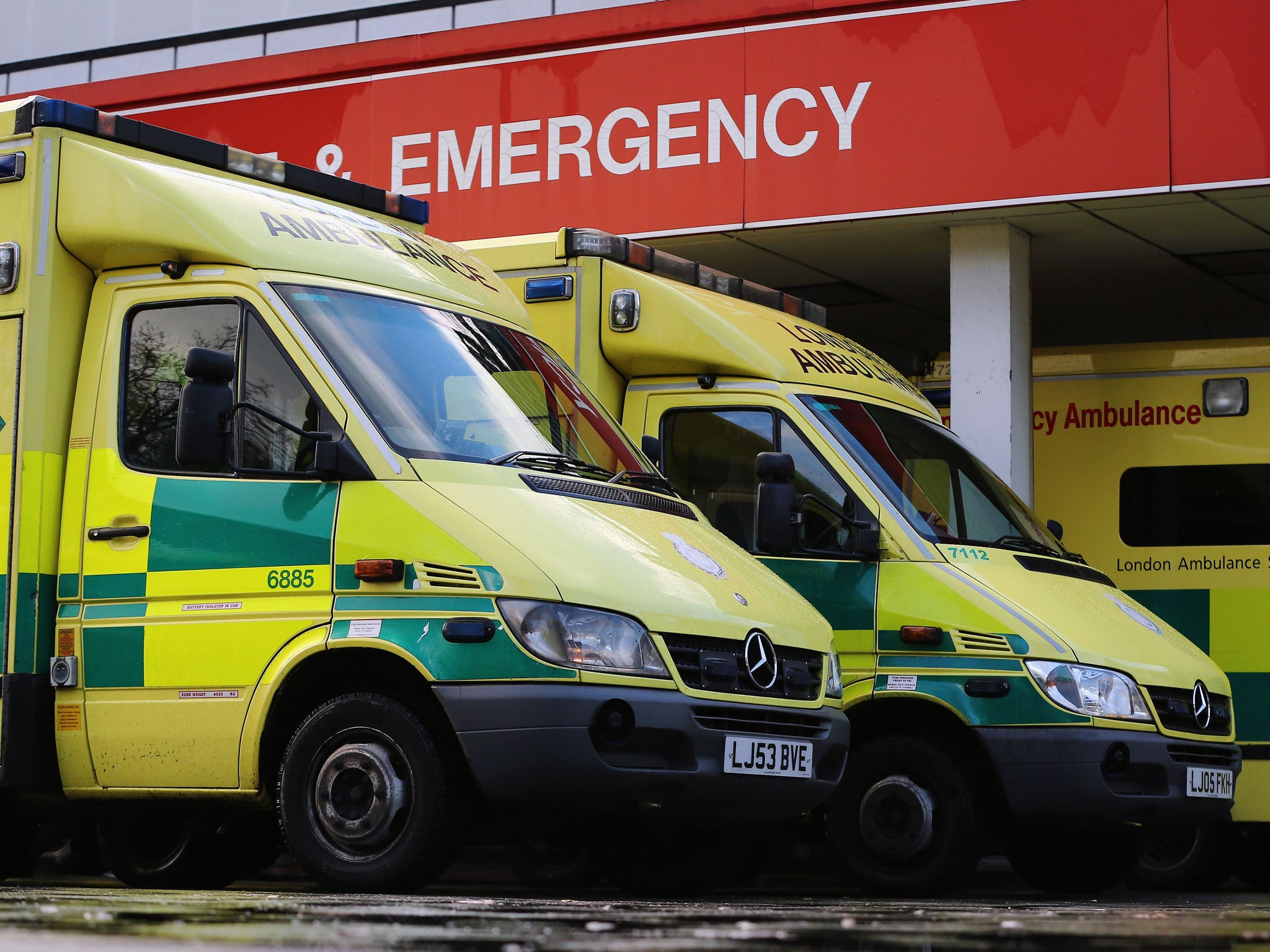Heart attack signs must be remembered, charity urges after alarming new survey
Almost half of salvageable heart muscle deteriorates after one hour of an artery becoming blocked

Your support helps us to tell the story
From reproductive rights to climate change to Big Tech, The Independent is on the ground when the story is developing. Whether it's investigating the financials of Elon Musk's pro-Trump PAC or producing our latest documentary, 'The A Word', which shines a light on the American women fighting for reproductive rights, we know how important it is to parse out the facts from the messaging.
At such a critical moment in US history, we need reporters on the ground. Your donation allows us to keep sending journalists to speak to both sides of the story.
The Independent is trusted by Americans across the entire political spectrum. And unlike many other quality news outlets, we choose not to lock Americans out of our reporting and analysis with paywalls. We believe quality journalism should be available to everyone, paid for by those who can afford it.
Your support makes all the difference.A leading heart charity has urged people not to ignore the symptoms of a heart attack, as new figures show that one in 10 sufferers do not seek medical help for at least two days.
A survey of 500 heart attack survivors by the British Heart Foundation (BHF) found that one in three believed their symptoms were indigestion, and half did not seek medical health for over an hour.
Some 11 per cent waited for two days or longer before visiting a doctor. A further 9 per cent delayed seeking medical help for two to three hours, with 7 per cent delaying for five hours.
A heart attack strikes when a blood clot forms in a coronary artery, and stops the organ’s blood supply.
In light of the findings, the charity has sought to highlight the symptoms of a heart attack, as the almost half of salvageable heart muscle deteriorates after one hour of the artery becoming blocked.
But over a quarter of those surveyed were treated in one hour.
These include chest pain, pain in other parts of the body such as the arms, feeling lightheaded or dizzy, sweating, shortness of breath, nausea or vomiting, coughing or wheezing and an overwhelming sense of anxiety.
BHF chief executive Simon Gillespie: “It's extremely alarming that the majority of people who suffer heart attacks mistake their symptoms for something less serious and delay getting medical help.”
”Every second counts when someone has a heart attack. The sooner people recognise their symptoms and call 999, the better their chance of recovery.“
Further research is needed into preventing and treating heart attacks, the charity stressed.
Mr Gillespie added: ”Research advances mean seven out of ten people now survive a heart attack. But most heart attacks occur without warning and we have no way of predicting when they will strike.
“We need to accelerate research into improving our understanding of the furring of the arteries that causes heart attacks and develop better ways of preventing them. Also, minor heart attacks which are often a prelude to a much more serious one, can be difficult to diagnose.
”We therefore need more effective ways of diagnosing them so people at risk get the life-saving treatment they need.“
Additional reporting by PA
Join our commenting forum
Join thought-provoking conversations, follow other Independent readers and see their replies
Comments